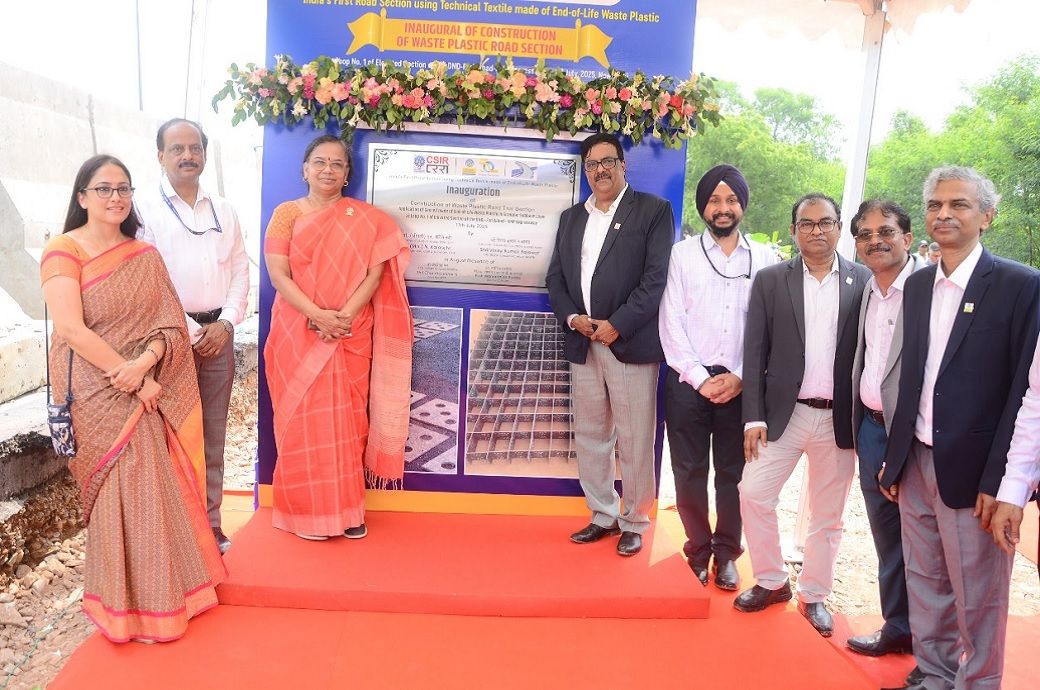
These three-dimensional, block-shaped modules can be filled with soil or construction debris and used for building roads, particularly in challenging terrain.
BPCL, CRRI and the National Highways Authority of India (NHAI) recently inaugurated the technology’s first field trial on the Delhi-Noida-Delhi (DND)—Faridabad—Kundli–Manesar–Palwal (KMP) Expressway, BPCL announced on X.
The inauguration was graced by Kalaiselvi, director general of the Council of scientific and Industrial Research (CSIR), along with Chandrasekhar N, head of research and development at BPCL, and Manoranjan Parida, director of CSIR-CRRI.
This pilot covers 1,280 square metre and uses up to 25 tonnes of plastic waste.
Jointly patented by CSIR-CRRI and BPCL, the innovation is slated for field trials with the Military Engineering Services in August.
The teams aim to showcase its application in high-stress, difficult-to-access regions.
The material was cultivated through mechanical recycling, producing modules with a thickness of 4-8 mm. Plant trials in collaboration with Tata Projects and a 160-metre road section, supported by the NHAI, helped validate the concept.
The technology also addresses the issue of multi-layered plastics, currently not included in Indian Roads Congress (IRC) specifications.
ALCHEMPro News Desk (DS)
Receive daily prices and market insights straight to your inbox. Subscribe to AlchemPro Weekly!